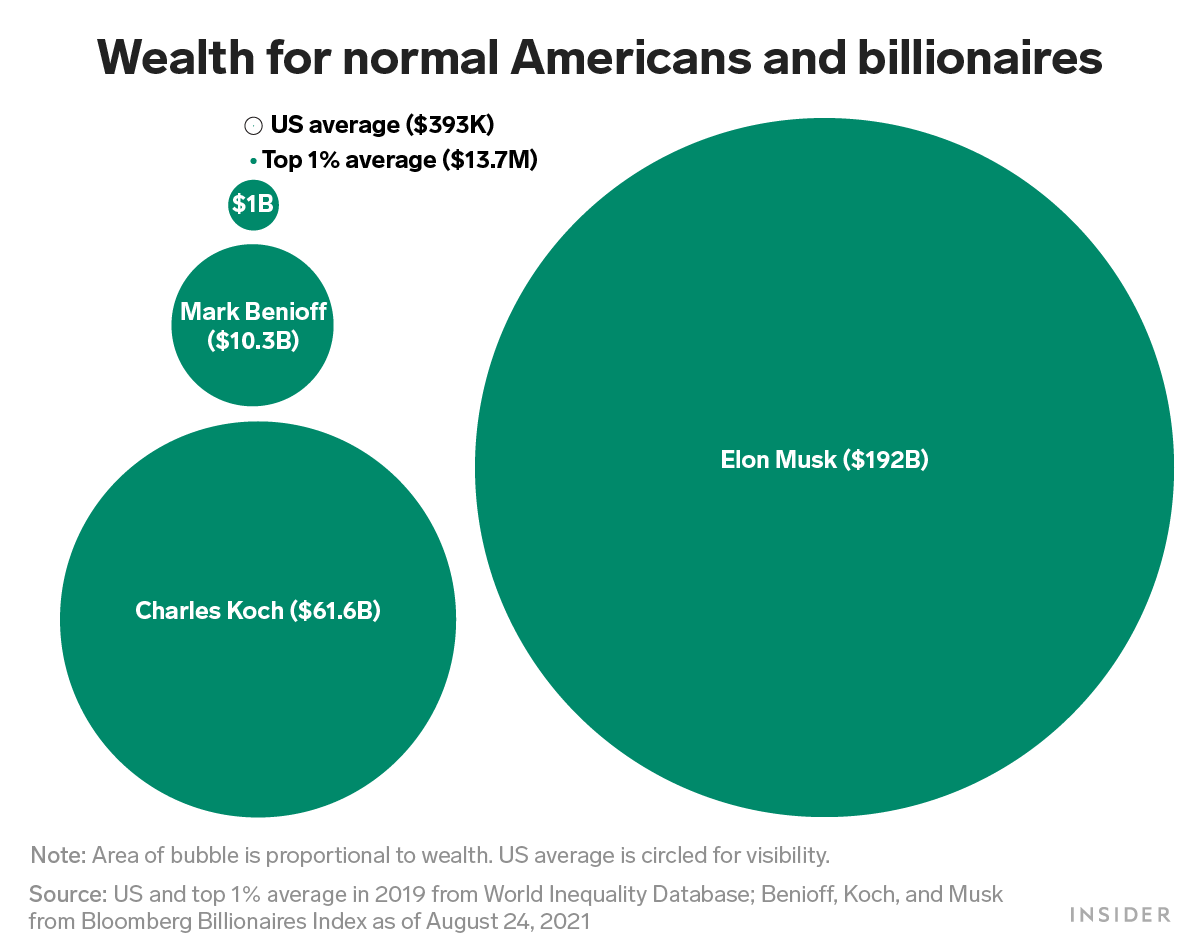
REUTERS/Mike Blake
- The wealth gap between billionaires and everyone else is so vast it's hard to visualize.
- Even high earners and those in the top 1% are dwarfed by the fortunes of the wealthiest.
- Most progressive plans for a wealth tax primarily target those mega-fortunes, not the merely rich.
- See more stories on Insider's business page.
The gap between normal Americans and the wealthy shouldn't surprise anyone – but just look at this chart and the mind reels.
It can still be surprising to visualize the actual magnitude of the difference between a typical person, or even a very well-off person, and a billionaire.
The average American has personal wealth of about $393,000, according to the World Inequality Database. It might surprise you to learn that someone with that kind of net worth is not "wealthy," relative to the country's elite earners.
If this sounds wild to you, take a look at the chart we made using data from the World Inequality Database and Bloomberg's Billionaires Index. The bubbles represent the relative wealth of the average American – just one pixel wide in the chart below – compared to the average wealth of the top 1% of people in the US. We also threw in bubbles to represent multibillionaires Marc Benioff and Charles Koch, as well as Elon Musk, the richest person in the world as of August 24.

The chart shows just how far ahead the billionaires are from everyone else. The dot representing the average American's wealth is so small that we had to draw a circle around it. If it had been any larger, Elon Musk's bubble – 488,000 times as large as the average American's – would be wider than the page. Even the average wealth of the top 1%, at about $13.7 million, is dwarfed by the billionaires.
Most HENRYs, a term that stands for "high earner, not rich yet," make six figures but still live paycheck to paycheck. Though they're in a much better position than many Americans to pay their mortgage, buy a car, or take a vacation, compared to billionaires like Musk or Benioff, they don't make the cut for the wealthiest.
In fact, when progressives like Elizabeth Warren talk about implementing a wealth tax, they're not talking about HENRYs, who are considered middle class in the US. They're not even talking about the top 1%.
The wealth tax would cover something more like the top 0.05%, according to Warren's most recent proposal, the Ultra-Millionaire Tax Act. It would impose a 2% tax on households with a net worth of $50 million or more and 3% tax for those with a net worth of $1 billion or more. These thresholds aren't even close to the average 1%-er's net worth of $13.7 million.
The US has 650 billionaires. According to an analysis by Americans for Tax Fairness and the Institute for Policy Studies Project on Inequality, if they had paid the 2% to 3% tax Warren proposes, the US government would've raised $114 billion. Or $1.4 trillion in a decade - enough to pay for half of President Biden's economic agenda.
The average American, though, they're just a dot on the chart.
